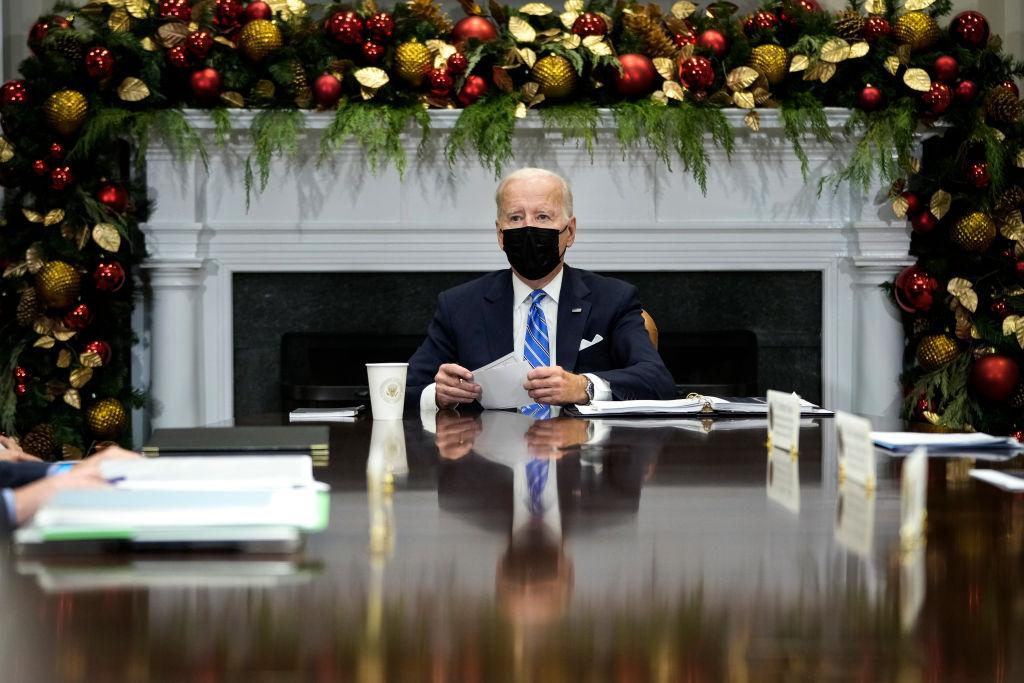President Joe Biden declared ahead of a White House task force meeting on Dec. 22, that his administration’s efforts to eliminate supply-chain bottlenecks ahead of the holiday season had succeeded.
Biden met with his Supply Chain Disruptions Task Force, which consisted of administration officials and the CEOs of large private-sector companies.





